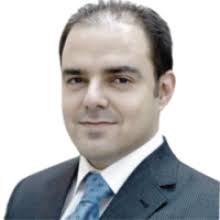-
The Caliphate for Quraysh: Why Meccan ancestry is vital for ISIS

When the self-proclaimed caliph of ISIS Abu Bakr al-Baghdadi was killed in October 2019, The Guardian ran a story about his successor, Abu Ibrahim al-Hashemi. It said: “His last name suggests that he, as did Baghdadi, claims a lineage to the Prophet Mohammad, a position that offered legitimacy in some quarters.”
The last two words, “some quarters,” raised red flags for anybody familiar with the history of Islam, and that of its caliphate. It should have been “all quarters” across Muslim society, be it conservative, pious, or jihadiradicalized. Sunni Muslims go by the Prophet’s hadith (compilation of sayings) arguing that only a member of his Meccan tribe, Quraysh, is eligible for the caliphate. Shiites go even further, claiming that only members of the Prophet’s bloodline, or Al Al-Bayt, can be considered for the highest post in Islam, which literarily means “successor to the prophet.”There is only one school of Islam that waivers these two conditions, being that of the Hanafis. And that is why the Ottoman sultans took it up as an official sub-sect, to justify their claim to the caliph, although they were neither Meccan notability nor from Quraysh.
That also explains why many ambitious figures in Islamic history never claimed the caliphate for themselves, like Osama Bin Laden. The founder of the modern state of Saudi Arabia King Abdul-Aziz Al Saud would have loved to declare himself caliph, but he did not dare tamper with such a sacred and long-respected tradition. It made him shiver with rage when his prime rival in Arabian politics, Sharif Hussein Bin Ali, laid claim to the post after it was abolished by Kemal Ataturk in Turkey in March 1924.Back then, so serious was the matter that a group of learned Syrians set up a society to headhunt for a new caliph, inspired by the Caliphate Movement in India.
This was no joking matter. It is not something that can be amended, ignored, or sidelined. And it explains why when Abu Bakr al-Baghdadi addressed the world from a mosque in Mosul almost seven years ago, ISIS media made careful mention of his full name, “Abu Bakr al-Baghdadi and Qurashi al-Hassani.” That is how the terror group referred to him in all of their official statements from 2014 until his killing in 2019. They were reminding everybodythat he hailed from Quraysh and was a direct descendant of the Prophet’s grandson, Imam al-Hasan. They even came up Western journalists and non-Muslims tend to drop both titles for practicality, but ISIS media never referred to him without boththem. Its also worth mentioning that Baghdadi ripped phrases from one of his namesake speeches, being Abu Bakr al-Saddiq, the first caliph of Islam.
Sacred dream
The idea of a caliphate has been a sacred dream, passed down from one generation of Islamists to another. Celebrated jihadis harbor the exact same dream, from Bin Laden and Ayman al-Zawahiri to Abu Bakr al-Baghdadi and Abu Mohammad al-Golani. Even moderate Islamic politicians dream of restoring the caliphate. Shortly after they won the post-Arab Spring elections in Tunisia in October 2011, Secretary-General of the Islamic al-Nahda Party Hamadi al-Jbeli said: “We are in the sixth caliphate, God willing.” By sixth he was referring to the four Salaf caliphs (Abu Bakr, Omar, Uthman, Ali) and adding a fifth, Omar Ibn Abdul-Aziz of the Umayyad Dynasty. Tunisian leader Rashid al-Ghannouchi added that a caliphate was the hope and desire of all Muslims. The leader of the Egyptian Muslim Brotherhood, Mohammad Badie, went further, saying that an Islamic state governed by the laws of sharia and headed by a caliphate was his ultimate goal, and those of his party.
Abu Ibrahim al-Qarashi
Fast forward to 2021. This month Abu Bakr al-Baghdadi’s successor was in the news, after a BBC documentary revealed the full story behind his real identity. The new caliph, whose real name is Amir al-Salbi, was not on the US hitlist prior to 2019. Few had heard of him before Baghdadi personally chose him as a successor in July 2019. His only credentials, according to the new documentary, are that he spent prison time at Camp Bucca, and came from Quraysh. So did his newly appointed spokesman Abu Hamzah al-Qurashi, speculating that just like Arab despots often do, Qurashi is removing Baghdadi’s men from top positions and replacing him with new figures who owe him—and him only—direct allegiance. That is one glue that keeps them together and so is the fact that they are all Iraqi natives, with no Syrian or foreign fighter at top command. And all trace their family lineage to Quraysh.
This, of course, is no accident.

BY: Sami Moubayed
Tags
You May Also Like
Popular Posts
Caricature
BENEFIT Sponsors BuildHer...
- April 23, 2025
BENEFIT, the Kingdom’s innovator and leading company in Fintech and electronic financial transactions service, has sponsored the BuildHer CityHack 2025 Hackathon, a two-day event spearheaded by the College of Engineering and Technology at the Royal University for Women (RUW).
Aimed at secondary school students, the event brought together a distinguished group of academic professionals and technology experts to mentor and inspire young participants.
More than 100 high school students from across the Kingdom of Bahrain took part in the hackathon, which featured an intensive programme of training workshops and hands-on sessions. These activities were tailored to enhance participants’ critical thinking, collaborative problem-solving, and team-building capabilities, while also encouraging the development of practical and sustainable solutions to contemporary challenges using modern technological tools.
BENEFIT’s Chief Executive Mr. Abdulwahed AlJanahi, commented: “Our support for this educational hackathon reflects our long-term strategic vision to nurture the talents of emerging national youth and empower the next generation of accomplished female leaders in technology. By fostering creativity and innovation, we aim to contribute meaningfully to Bahrain’s comprehensive development goals and align with the aspirations outlined in the Kingdom’s Vision 2030—an ambition in which BENEFIT plays a central role.”
Professor Riyadh Yousif Hamzah, President of the Royal University for Women, commented: “This initiative reflects our commitment to advancing women in STEM fields. We're cultivating a generation of creative, solution-driven female leaders who will drive national development. Our partnership with BENEFIT exemplifies the powerful synergy between academia and private sector in supporting educational innovation.”
Hanan Abdulla Hasan, Senior Manager, PR & Communication at BENEFIT, said: “We are honoured to collaborate with RUW in supporting this remarkable technology-focused event. It highlights our commitment to social responsibility, and our ongoing efforts to enhance the digital and innovation capabilities of young Bahraini women and foster their ability to harness technological tools in the service of a smarter, more sustainable future.”
For his part, Dr. Humam ElAgha, Acting Dean of the College of Engineering and Technology at the University, said: “BuildHer CityHack 2025 embodies our hands-on approach to education. By tackling real-world problems through creative thinking and sustainable solutions, we're preparing women to thrive in the knowledge economy – a cornerstone of the University's vision.”
opinion
Report
ads
Newsletter
Subscribe to our mailing list to get the new updates!






















